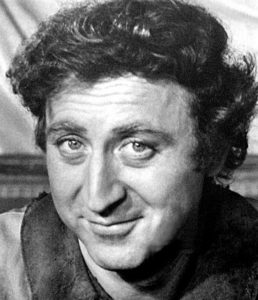Jerome Silberman (1933-2016) was born in Milwaukee, the son of Russian-Jewish parents. When he was eight years old, his mother fell ill and the doctor told him to try to make her laugh. This is when his passion for acting began. At 13, he started taking professional acting lessons, and his mother soon sent him to a school in Hollywood. As the only Jewish kid, he was often bullied and abused, and had to leave the school shortly after. Back in Milwaukee, he performed in his first official play (Romeo & Juliet) at 15. Silberman went on study theatre at the University of Iowa, where he became a lifelong member of the Jewish fraternity AEPi. After college, he went to acting school in England. There, he also studied fencing and became a fencing champion. Upon returning to the US, Silberman was drafted to the army and served as a medic. After this, he went back to acting school (in New York) and supported himself by working as a limo driver and fencing instructor. After three more years of study, he started getting professional acting jobs. During this time, he adopted the stage name Gene Wilder. It wasn’t long before Wilder appeared in a number of hit Broadway plays. In 1967, he got a leading role in The Producers. The movie became a comedy classic, and Wilder was nominated for an Oscar. After some more successes, Wilder was cast as Willy Wonka in the adaptation of Charlie and the Chocolate Factory, perhaps his most famous role. Wilder went on to star in many more popular films, including multiple collaborations with fellow comedy legends Richard Pryor and Mel Brooks. All together, he appeared in 23 films, 9 television shows, and 5 Broadway plays. He inspired a generation of comedians, actors, and pastry chefs. Wilder also wrote 6 books. Sadly, the beloved actor passed away earlier this week. His film Blazing Saddles – which some consider the funniest movie of all time – will be playing in many theaters this weekend as a tribute.
Words of the Week
Most tragedy is misunderstood comedy. God is a great humorist working with a rather glum audience.
– Garrison Keillor



